How do you prepare to step into the larger-than-life shoes of a historical legend like Martin Luther King or Malcolm X? Perhaps even more daunting, how do you portray the women in their lives, when relatively little is known about them? I had the chance to find out by interviewing the four leads of Nation Geographic‘s Genius: MLK/X — which premieres on the cable network Feb 1st before streaming on Hulu Feb 2nd.
The eight-episode drama takes us deep into the early years of the legendary civil rights leaders, focusing on the pivotal moments and people who shaped them — including their wives, Coretta Scott King and Betty Shabazz.
After a Washington, D.C. premiere at the Smithsonian African American Museum, I spoke to the cast about what surprised them, what they learned, and what they would say to the real life legends if they had the chance.
First, some quick background on the talented foursome.
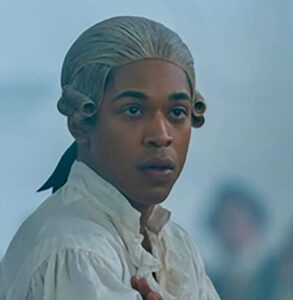 Kelvin Harris Jr (Martin Luther King) recently played the lead in Chevalier, the biopic about France’s celebrated violinist-composer-fencer. But you might also recognize him as B.B. King in Baz Luhrman’s Elvis, and he was part of the SAG-award winning cast of The Trial of Chicago 7.
Kelvin Harris Jr (Martin Luther King) recently played the lead in Chevalier, the biopic about France’s celebrated violinist-composer-fencer. But you might also recognize him as B.B. King in Baz Luhrman’s Elvis, and he was part of the SAG-award winning cast of The Trial of Chicago 7.
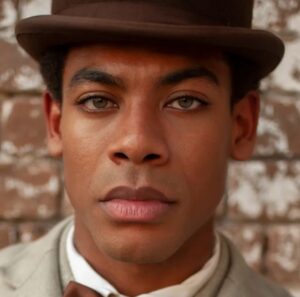 Aaron Pierre (Malcolm X), who is a graduate of London’s famous LAMDA school, recently appeared in both Underground Railroad and M. Night Shyamalan’s film Old, in which he played a rapper and wrote and performed a song.
Aaron Pierre (Malcolm X), who is a graduate of London’s famous LAMDA school, recently appeared in both Underground Railroad and M. Night Shyamalan’s film Old, in which he played a rapper and wrote and performed a song.
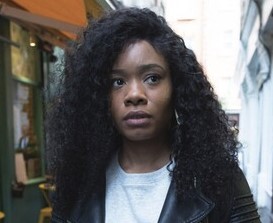 Weruche Opia (Coretta Scott King), a British-Nigerian actress, was nominated for a BAFTA for her performance in the BBC/HBO miniseries I May Destroy You. She was also in Apple TV+’s High Desert, and, on the side, she founded a clothing line, Jesus Junkie Clothing.
Weruche Opia (Coretta Scott King), a British-Nigerian actress, was nominated for a BAFTA for her performance in the BBC/HBO miniseries I May Destroy You. She was also in Apple TV+’s High Desert, and, on the side, she founded a clothing line, Jesus Junkie Clothing.
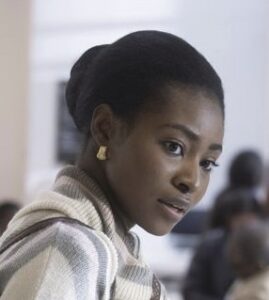 Jayme Lawson (Betty Shabazz) – A Julliard Grad best known for playing mayoral candidate Bella Reál in The Batman, Jayme also played the young Michelle Obama in the Showtime series The First Lady. But you might also recognize her from Till and the Woman King.
Jayme Lawson (Betty Shabazz) – A Julliard Grad best known for playing mayoral candidate Bella Reál in The Batman, Jayme also played the young Michelle Obama in the Showtime series The First Lady. But you might also recognize her from Till and the Woman King.
My first interview session was with Weruche and Jayme.
Felipe Patterson: What surprised you most about Coretta (Scott King) and Betty (Shabazz) while researching your roles?
Weruche Opia (Coretta): For me, I would say everything because, unfortunately, I didn’t know much about Coretta until I took on this role and delved into the research. It’s almost criminal that we aren’t all well-versed in the lives of the women who shaped the men we know as Malcolm X and Martin Luther King.
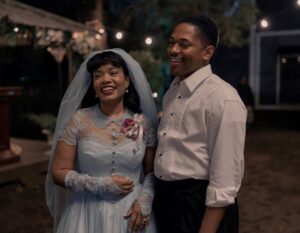
Learning about her personality, the challenges she faced, her doubts, and desires has been eye-opening. I had no idea she was an opera singer or the potential she had with her voice. Uncovering her deep-seated activism and her role in influencing Martin Luther King’s stance against the Vietnam War was particularly enlightening. These are aspects of their lives that often go unnoticed by the general public.
This newfound knowledge has ignited a fire within me and instilled a sense of responsibility. Recognizing that if this information was a revelation to me, it likely would be for many others, I feel compelled to contribute to telling this story. My goal is to make this information more readily available and easily digestible for a broader audience.
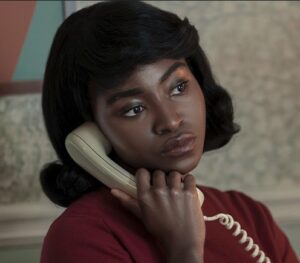
Jayme Lawson (Betty): Similarly for me, I had a more in-depth understanding of Malcolm and Martin, and I knew a little about Coretta’s story. Surprisingly, I knew very little about Dr. Shabazz. For many people, she is unfortunately recognized merely as Malcolm X’s wife, with her name often overlooked. This realization prompted a profound learning experience, and I felt an immense responsibility to portray her authentically. My goal was to elevate her narrative beyond being solely the wife of a great man. I wanted to highlight her independence, showcase the fullness of her character, and ensure she receives the recognition and reverence she deserves independent of her association with Malcolm X.
Felipe: Which scene was the most emotionally challenging to film, and how did you approach it?
Weruche: I know what the most emotionally challenging scene was. It’s the one where their home was bombed. It was actually the subsequent scene that left a lasting impact on me. It was the moment when Martin, pushed to his limits, acquired a gun, and was ready to take action, willing to do whatever it took.
I remember being emotionally spent because it was a lot to deal with. It required going into the mindset of witnessing the man you love, who advocates nonviolence, pushed to the point of contemplating drastic measures. It made me reflect on the emotional turmoil Coretta might have experienced in a situation where your home is destroyed, your husband is ready to take action, and you have a child to protect.
The weight of that day stayed with me. I found myself spending much of the day in tears as I thought about what they had to go through. It made me empathize with the real-life struggles they faced—where their lives were constantly at risk.
Jayme: For me, it was the assassination scene. That day on the calendar was a constant reminder, and I kept saying, “I see you, but I’m not ready to get there yet.” I remember praying to God, acknowledging the calling to be part of this, but also pleading for strength to navigate it.
That particular filming day left me emotionally scarred throughout. Engaging with such intense narratives takes a toll, and fully committing to the story’s depth is emotionally taxing. Safely emerging from that headspace requires intentional self-care. Fortunately, Aaron (Pierre), a true saving grace, played a crucial role that day. Our chemistry and connection allowed us to support each other during the challenging scenes. It’s a day etched into my memory where Aaron’s care and our collaborative efforts made a significant impact.
Felipe: What would you say to Coretta and Betty if you could speak to them directly?
Weruche: I’d say, madam, you did the thing. Hello? Yeah. You did the thing. Yeah. Thank you for doing the thing.
Jayme: Thank you for showing me a way. Thank you for showing me a way to be — a strong woman, a resilient woman, and not have to sacrifice your love while doing so.
Felipe: What were some of the movies that impacted you growing up?
Weruche: “What’s Love Got To Do With It?” with Angela Bassett portraying Tina Turner. Emotionally impactful, that movie really resonated with me. I remember falling in love with Angela Bassett during that film. It was a moment when I realized the powerful connection I felt with storytelling. For a long time, I found it difficult to distinguish between Angela Bassett and the real Tina Turner because she delivered such a phenomenal performance. I remember certain scenes from the movie, and I remember thinking, “If I could do this, I would be happy.”
Jayme: For me, it’s not a movie, but the actress Phylicia Rashad served as a great inspiration. Watching “The Cosby Show” and witnessing her performances, I realized that acting was something I wanted to pursue, to follow in her footsteps.
Next up, I sat down with Kelvin Harrison Jr. and Aaron Pierre.
Felipe: What surprised you most about your characters while researching for the role? Did anything resonate with you the most?
Kelvin Harrison Jr. (MLK): I think what surprised me was a couple of things. Firstly, discovering that his name is Michael was quite unexpected. Additionally, learning that his dad changed his name based on a vision was intense, especially for a child. We often assume these individuals just arrived at their fame, but witnessing the step-by-step journey, the pivotal moments of genius, and the impact of their parents’ decisions, as well as their own, was truly eye-opening.
On a lighter note, it was amusing to find out that Star Trek was MLK’s favorite TV show! I found it fascinating that someone so deeply connected to science and technology appreciates a show centered around human beings just being themselves.
Aaron Pierre (Malcolm X): For me, it was the opportunity and privilege to gain a deeper insight into his personal life, convictions, and priorities. Learning about the profound love he had for Dr. Betty Shabazz, his children, his community, and his people was an overwhelmingly blessed experience. I’m truly grateful for the chance to dive deep into those aspects of his life.
Felipe: What similarities and differences do you think MLK and Malcolm X have in their beliefs?
Aaron: I find one remarkable aspect of this series to be the perception surrounding Dr. Martin Luther King Jr. and Malcolm X. There is arguably misinformation suggesting that they were diametrically opposed, but in my view, they shared a common objective. This perspective is subjective and reflects my personal viewpoint.
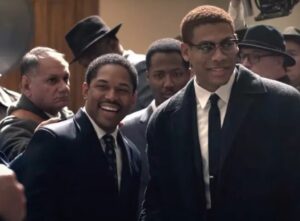
In essence, I believe they both aimed for the same goal but differed in their chosen paths. Their beliefs diverged on the most effective and righteous route to reach that goal quickly, with utmost conviction, integrity, and dignity.
It wasn’t a clash of opposing forces; rather, their efforts ran in parallel. I believe there is more synergy and synchronicity between them than we may have been taught previously. These differences, instead of being divisive, fueled each other’s journeys, propelling them forward in the most impactful way.
While we may never have the chance to engage in a conversation with these men, I imagine that, given the opportunity, they would have been deeply grateful for one another and just let him know how much he’s loved and appreciated.
Felipe: What would you say to Martin Luther King and Malcolm X if you could speak with them today?
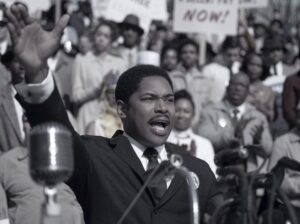
Aaron: I can’t predict the duration of his stay, but I believe if I were to express my thoughts, it would likely extend beyond the time he had available. Nonetheless, the core of my message would be one of gratitude. I would convey a profound sense of appreciation for all present.His actions, and the enduring impact of his legacy beyond his physical presence in this world, evoke sincere appreciation.
Kelvin: I don’t know what I would say? I mean, I would certainly find the words, but for some reason, it’s peculiar when you play the roles of these individuals or portray them. It’s an odd sensation, feeling deeply connected to them at times. There are moments when I wake up and find myself saying, “I love you, man.” It’s an intense affection, almost like a bond like that of a brother or a father. It’s difficult to articulate.
Aaron: That’s facts. There will be moments where you’ll be on set. It may sound unusual, but, you know, I would know when to go again on a particular take. I would feel connected, aligned, and sense a deeper exploration. This feeling arises from our desire to serve them to the very best of our ability.
Felipe: What movies impacted you growing up?
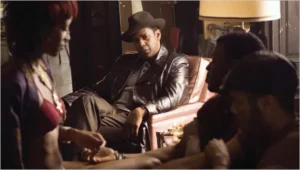
Kelvin: Growing up, I mostly watched cartoons, and it wasn’t until I was around 21 that I started watching adult movies. One film that left a significant impact on me was “John Q.” The father-son dynamic in the movie resonated with me, and I vividly remember being deeply moved by the emotional scenes, especially when the protagonist takes matters into his own hands inside the hospital. It struck a chord, and I found myself asking my dad, “What are you doing for me, man? Are you holding up hospitals to make sure my heart is good?”
Aaron: In terms of witnessing incredible storytelling, “American Gangster” stands out as a tremendous example. While there are many other noteworthy films, this one particularly comes to mind for its compelling narrative and execution.
You can catch the MLK/X series on National Geographic beginning February 1st — then Hulu on February 2nd.


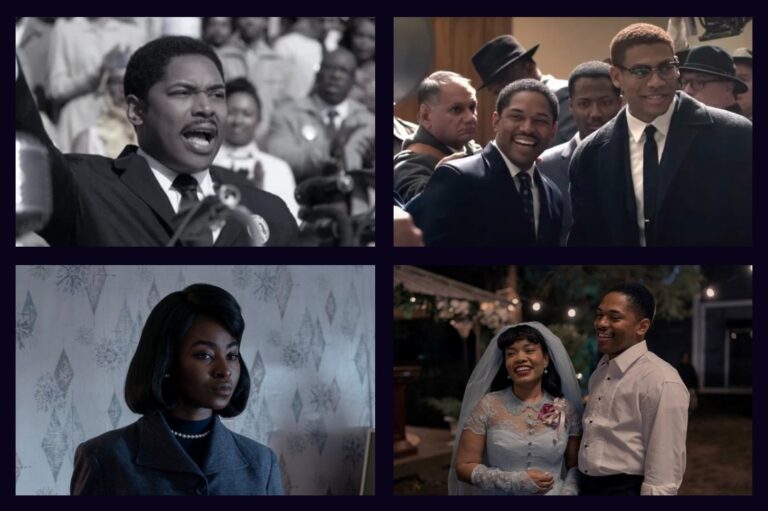
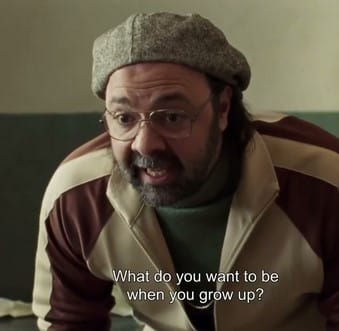
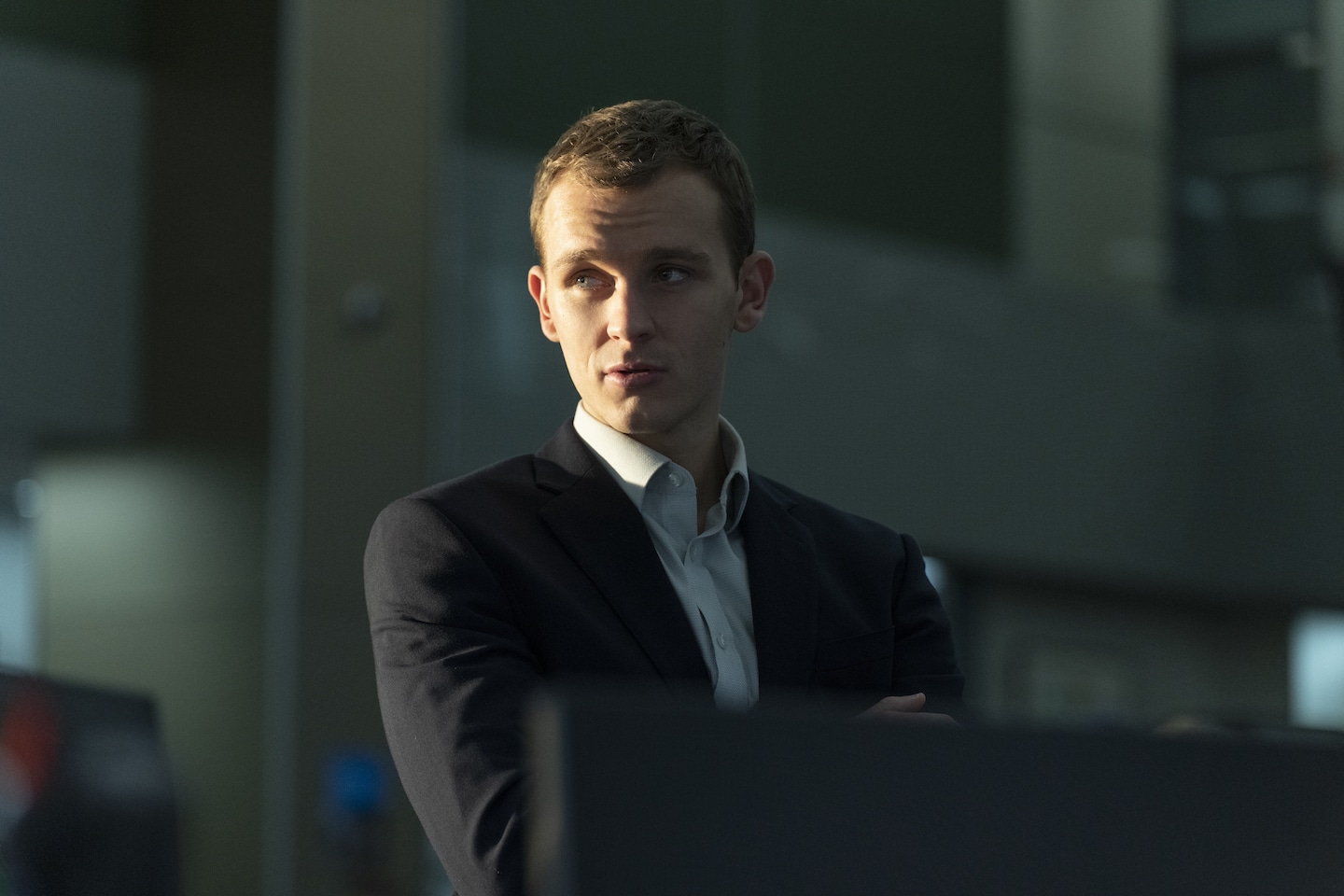
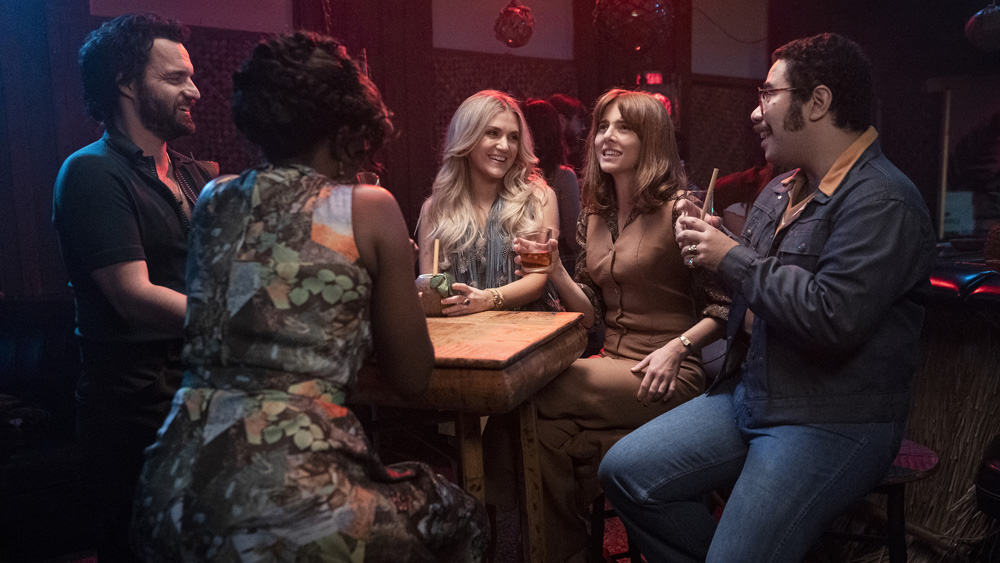
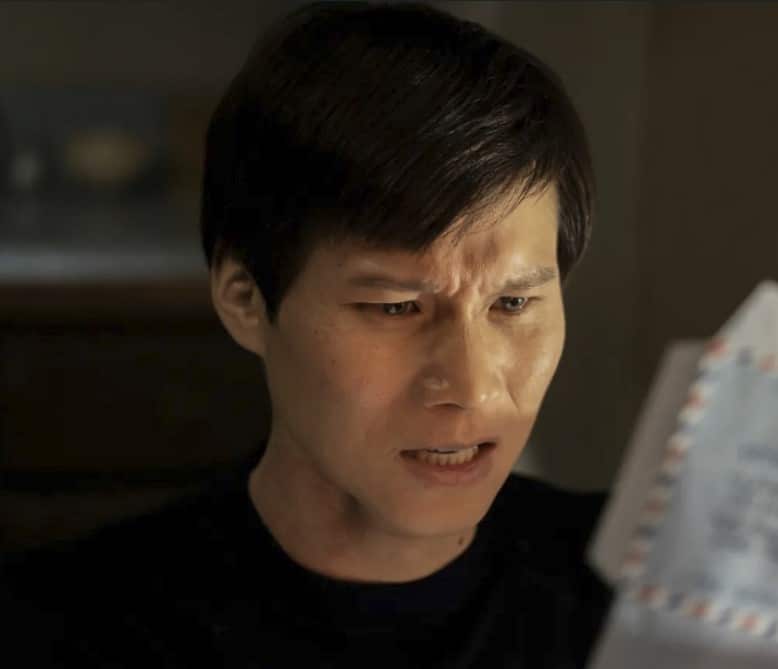
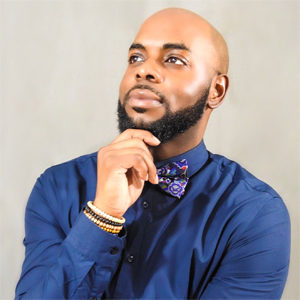

Start a watercooler conversation: